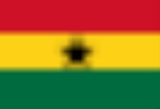
Kpandu
Encyclopedia
Kpandu is a town in the mountainous Volta Region
of Ghana
. It is near the north eastern arm of Lake Volta
and the Togo
border. Kpandu is connected by road through Gbefi to Hohoe
, Ho
and Dumbai
.The Kpando District is a district of Ghana in the Volta Region. It is one of the oldest administrative districts in the country dating back to the colonial era. Some of the towns located in the district include Vakpo, Wusuta, Kpandu Torkor, Dzigbe, Togorme, Sovie, Anfoega Adame, Anfoega Akukome, Gbefi-Hoeme, Fesi, Gbefi-Tornu, and Dzana. The Kpando District south of Kpando town is inhabited primarily by members of the Ewe Tribe, although a portion of the Kpando town center, known as "Zongo Town", is occupied by Moslem people from northern tribes. The word "Kpando" refers to the large bunches of green plants, with sword-like leaves, which originally occupied the site of Kpando town.
Ewe people in Kpando commonly refer to themselves as "Ewe Dome", meaning "Ewes who live separately". This refers to the cultural separation of Ewes in the Kpando town area from larger Ewe groups near Keta and Anexho, who historically maintained more centralized and hierarchical states with armies and hereditary kings. Ewe Dome more often accepted the teachings of Presbyterian and Catholic missionaries and did not form cohesive political entities above the village level.
Volta Region
Volta Region is one of Ghana's ten administrative regions. It is to the east of Lake Volta. Its capital is Ho.-List of districts:The region has 18 districts consisting of 3 municipal and 15 ordinary districts:-Background:...
of Ghana
Ghana
Ghana , officially the Republic of Ghana, is a country located in West Africa. It is bordered by Côte d'Ivoire to the west, Burkina Faso to the north, Togo to the east, and the Gulf of Guinea to the south...
. It is near the north eastern arm of Lake Volta
Lake Volta
Lake Volta is the largest reservoir by surface area in the world, and the fourth largest one by water volume. It is located completely within the country of Ghana, and it has a surface area of about 8,502 km² . Lake Volta lies along the Greenwich Meridian, and just six degrees of latitude...
and the Togo
Togo
Togo, officially the Togolese Republic , is a country in West Africa bordered by Ghana to the west, Benin to the east and Burkina Faso to the north. It extends south to the Gulf of Guinea, on which the capital Lomé is located. Togo covers an area of approximately with a population of approximately...
border. Kpandu is connected by road through Gbefi to Hohoe
Hohoe
Hohoe is a town in the mountainous Hohoe Municipality of the Volta Region of Ghana, with its beautiful climate and many tourist attractions like the Wli Waterfalls. It is between Lake Volta and the border of Togo. Hohoe is connected by road to Kpandu and Ho in Ghana; and Kpalimé and Badou in Togo....
, Ho
Ho, Ghana
Ho is a town in southeast Ghana and is the capital of the Volta Region. It lies between Mount Adaklu and Mount Galenukui , and is home to a museum, a cathedral and a large prison...
and Dumbai
Dumbai
Dumbai is a town in the Volta Region of Ghana. It is adjacent to Lake Volta. Dumbai is connected by road to Kpandu and by a ferry to roads connecting to Kete Krachi, and Bimbila....
.The Kpando District is a district of Ghana in the Volta Region. It is one of the oldest administrative districts in the country dating back to the colonial era. Some of the towns located in the district include Vakpo, Wusuta, Kpandu Torkor, Dzigbe, Togorme, Sovie, Anfoega Adame, Anfoega Akukome, Gbefi-Hoeme, Fesi, Gbefi-Tornu, and Dzana. The Kpando District south of Kpando town is inhabited primarily by members of the Ewe Tribe, although a portion of the Kpando town center, known as "Zongo Town", is occupied by Moslem people from northern tribes. The word "Kpando" refers to the large bunches of green plants, with sword-like leaves, which originally occupied the site of Kpando town.
Ewe people in Kpando commonly refer to themselves as "Ewe Dome", meaning "Ewes who live separately". This refers to the cultural separation of Ewes in the Kpando town area from larger Ewe groups near Keta and Anexho, who historically maintained more centralized and hierarchical states with armies and hereditary kings. Ewe Dome more often accepted the teachings of Presbyterian and Catholic missionaries and did not form cohesive political entities above the village level.

